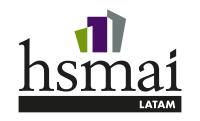According to HSMAI's Revenue Optimization Advisory Board, revenue management (RM) will undergo a significant transformation by 2025.
Hotel revenue leaders must adopt advanced strategies and technologies to remain competitive in an increasingly dynamic business environment. Below, the board's U.S. executives highlight the key trends and challenges that will shape revenue optimization in the coming years:
1. AI and machine learning
Artificial intelligence (AI) and machine learning (ML) are revolutionizing dynamic pricing, demand forecasting, and decision-making.
However, practical adoption remains a challenge as leaders seek to balance automation with necessary human oversight.
2. Personalization and guest expectations
Guests increasingly expect personalized pricing and booking experiences.
Revenue strategies must adapt to emerging traveler demands for experiential and hyperlocal offerings, including seamless interactions both pre-arrival and post-booking.
3. Optimization of total revenue
Expanding their focus beyond room revenue, hotels are focusing on ancillary services such as food and beverage, spas, and curated experiences to maximize overall profitability. This holistic approach mirrors strategies used in other sectors, such as airlines.
4. An evolving distribution landscape
The proliferation of online travel agencies (OTAs), affiliate networks, and omnichannel strategies poses challenges in managing distribution costs and maintaining rate parity.
It's crucial to optimize channel profitability while improving the direct booking experience.
5. Economic pressures and rising costs
Inflation, along with rising labor and operating costs, is squeezing profit margins, necessitating a shift from revenue growth to profitability-focused strategies.
In addition, economic fluctuations and uneven demand patterns complicate forecasting and budget planning.
6. Talent shortages and workforce gaps
Recruiting, retaining, and training qualified revenue management professionals remains a significant challenge.
Labor shortages and changing expectations about work-life balance further exacerbate the problem.
7. Technological integration and data fragmentation
Although revenue management systems are advancing, they often struggle to integrate alternative data sources and consolidate fragmented information.
Hotels need to adopt platforms that enable seamless connectivity and offer actionable insights.
8. Regulatory and ethical considerations
New regulations on rate transparency and data privacy laws are transforming pricing strategies.
Furthermore, ethical concerns about the use of AI and data management demand responsible implementation.
Underlying all of these trends is the fact that revenue optimization is no longer a standalone function, but a critical component of a hotel's overall business strategy.



